I have two lists. Even though the length are the same, the size of them are different. While parameters_train consists of 4 elements in one row, score1 consists of only one. I am trying to make a function that stores the generalization error. Here's the code and the error.
To give you an idea here is preview of lists.
My expected outcome is this.
generalization_error= [0, 0, 0.06, and so on...

